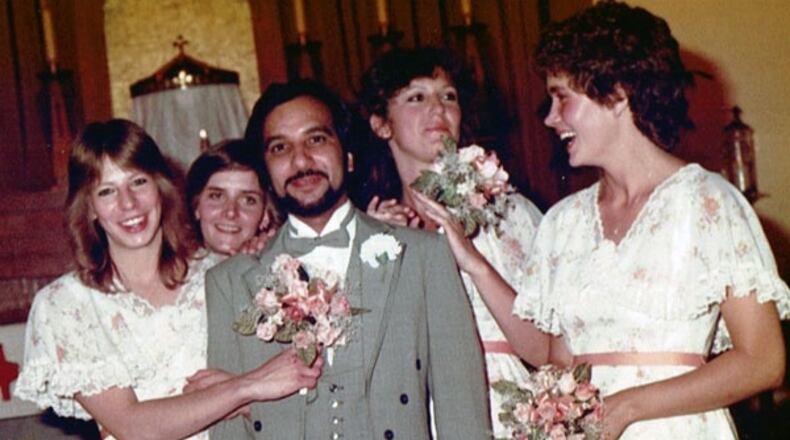For months Holly lay helpless in a Reno hospital bed, kept alive by a ventilator, a trach and hope. She could only mouth words and, for a stretch, her longtime partner Norbert said she silently talked up a storm to him. In a FaceTime call a week before she died, she nodded her head several times as I regaled her with stories of our youthful escapades. When she tried to respond, I couldn’t hear her, but I understood three words: “I love you.” Earlier that week, she scribbled three words to Norbert: “Help me die.”
Six words, sparse yet undeniable. “The hardest thing to say sometimes is ‘I want what you want,’” said my son Ali, a mental health counselor.
It was time for us to let go.
Outside my home office window this summer, the cicadas emerged from a 17-year hiatus to create quite a ruckus for a few weeks before mating and dying. At first, their shrill singsong annoyed me, but as Holly’s life slipped away, I listened anew to their poetic call. Isn’t life all about love and loss?
Holly and I became inseparable friends in high school when we played on the softball team and in summer leagues. During those vulnerable coming-of-age years, we spent hours playing ball, hitting the tennis courts, drinking Little Kings and hanging out on muggy Ohio summer evenings, the night sky twinkling with fireflies. We never thought their light would dim, let alone ours.
After we embarked to universities on the opposite ends of the state, we faithfully stayed in touch through lengthy letters — half news, half philosophical musings — that I still store in a shoebox. One summer break we set out in my rusted ‘69 Oldsmobile 442 on a zany mission to meet my teen idol Gary Puckett at Americana Amusement Park, where we managed to talk our way backstage. Flash forward to another summer, when she joined my sister Nancy and my college roommates as bridesmaids at my wedding. A candid photo captured her smiling face as the women laughed and teased the bemused groom.
And now, this summer.
Shortly after midnight on Independence Day, Holly found freedom from a body battered by cancer and a host of insurmountable health challenges. As fireworks lit up the Lake Michigan sky near our summer home, my husband Zafar unfolded a sky lantern. I swear I bought all brightly colored ones, so how did a white memorial lantern end up on the top of the stack? It was inscribed with the words, “May this light rise to the heavens to shine with you through all eternity.” Astonished, we stared at the lantern in reverent silence as our neighbor Kate picked up a pen and scrawled Holly’s name on it.
As Zafar lit the mini hot air balloon and gently guided it upward over the tranquil waves, Ali said softly, “That’s a God moment.” When I texted a photo to my friend Anna, she replied, “It gave me chills of recognition of so many things we rarely get to glimpse. It’s beyond poignant and honestly kind of magical.”
Standing on the sand, I watched the floating lantern become a tiny, then indistinguishable, dot in the inky sky. I knew its light couldn’t last forever — just like the sweetness of summer’s blackberries or the fleeting love call of cicadas.
Yet, in my sadness, I gratefully embraced this moment as one of life’s unexpected gifts, a reminder of the soaring power of love.
Teri Rizvi is executive director of strategic communications at the University of Dayton, where she directs the Erma Bombeck Writers’ Workshop. This essay will appear in her debut book, “One Heart with Courage: Essays and Stories” (Braughler Books, 2021).
About the Author



